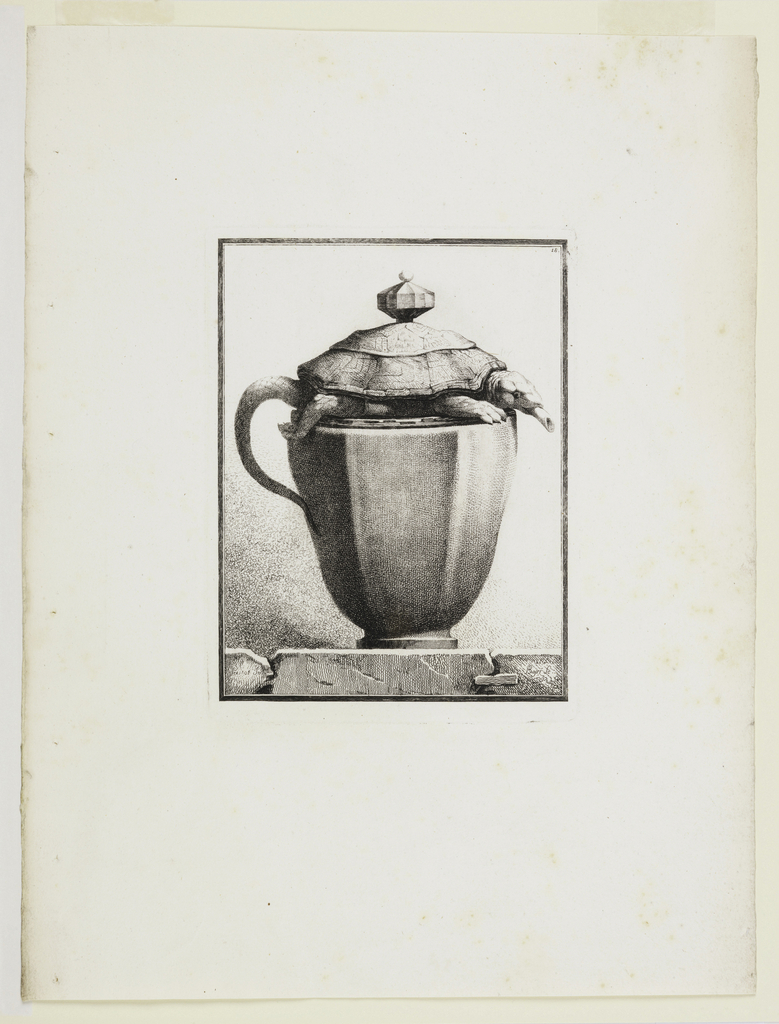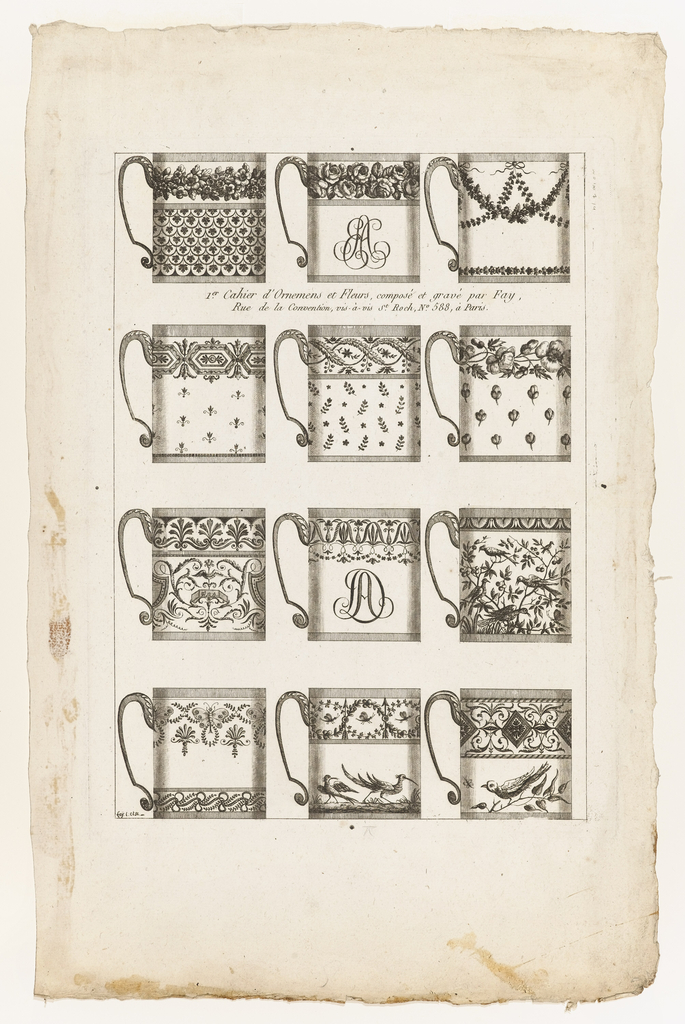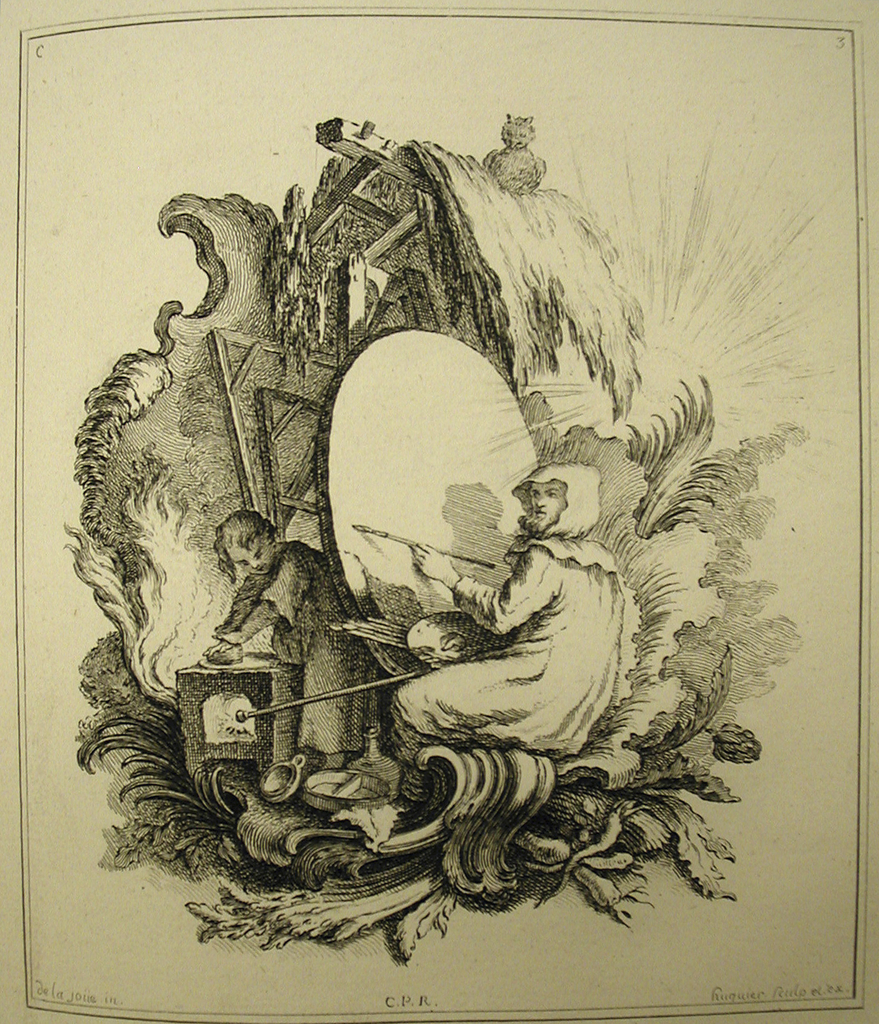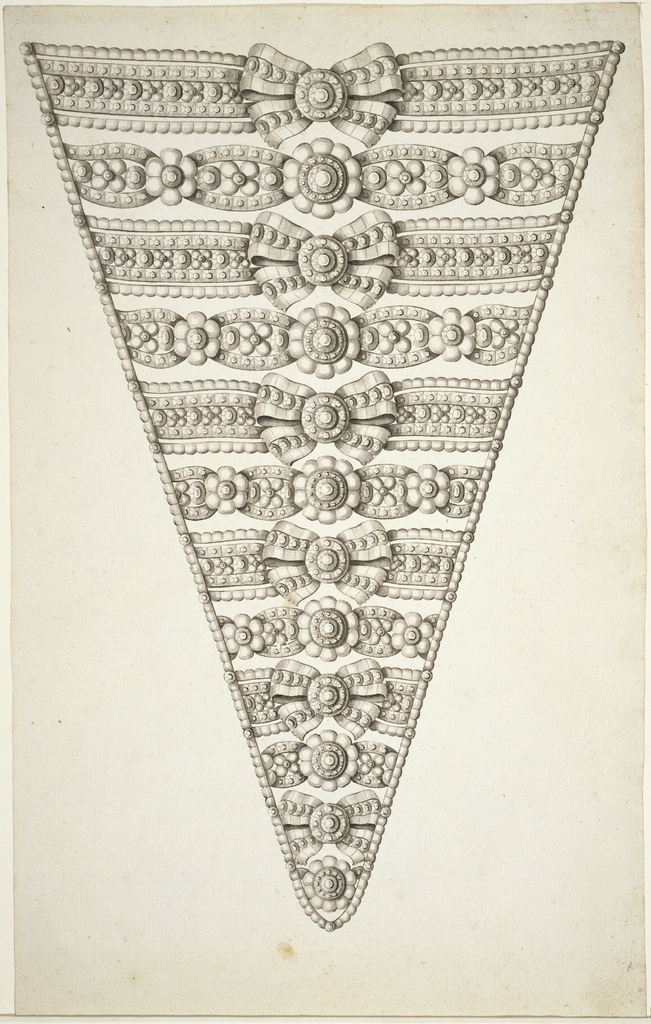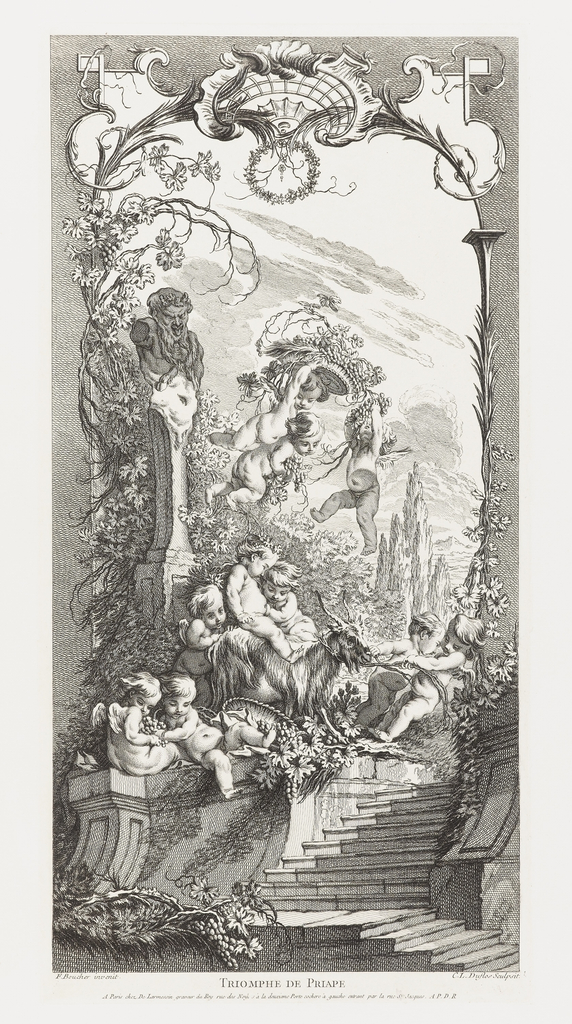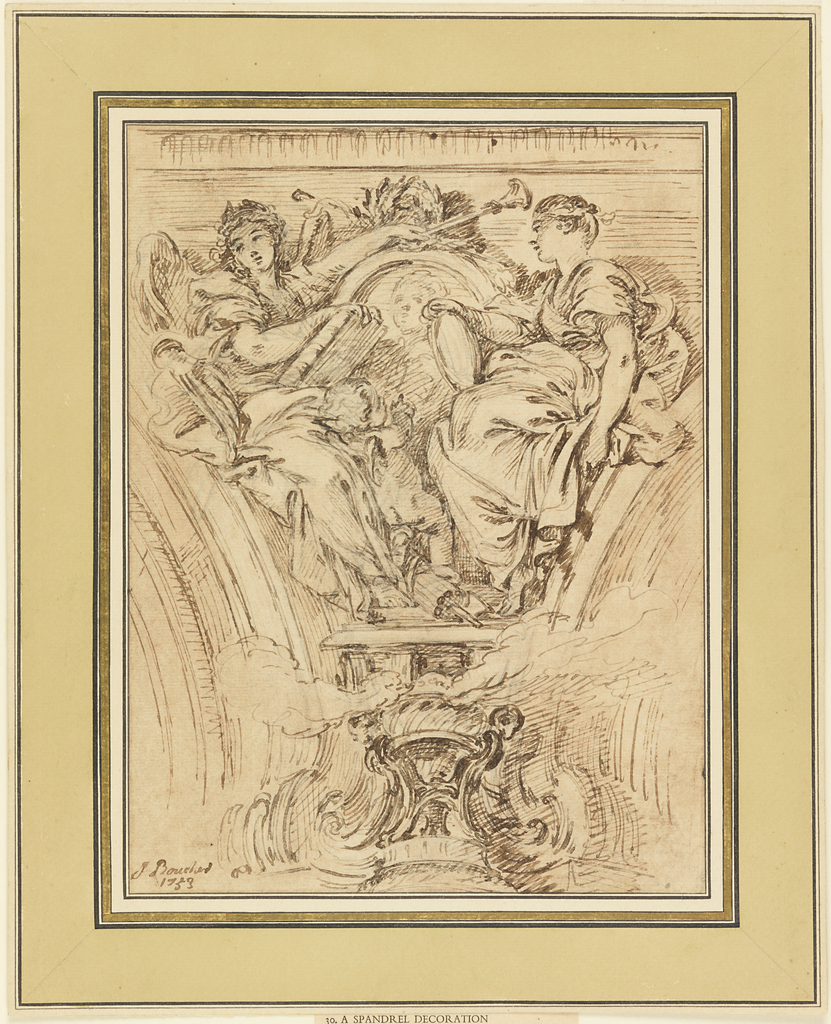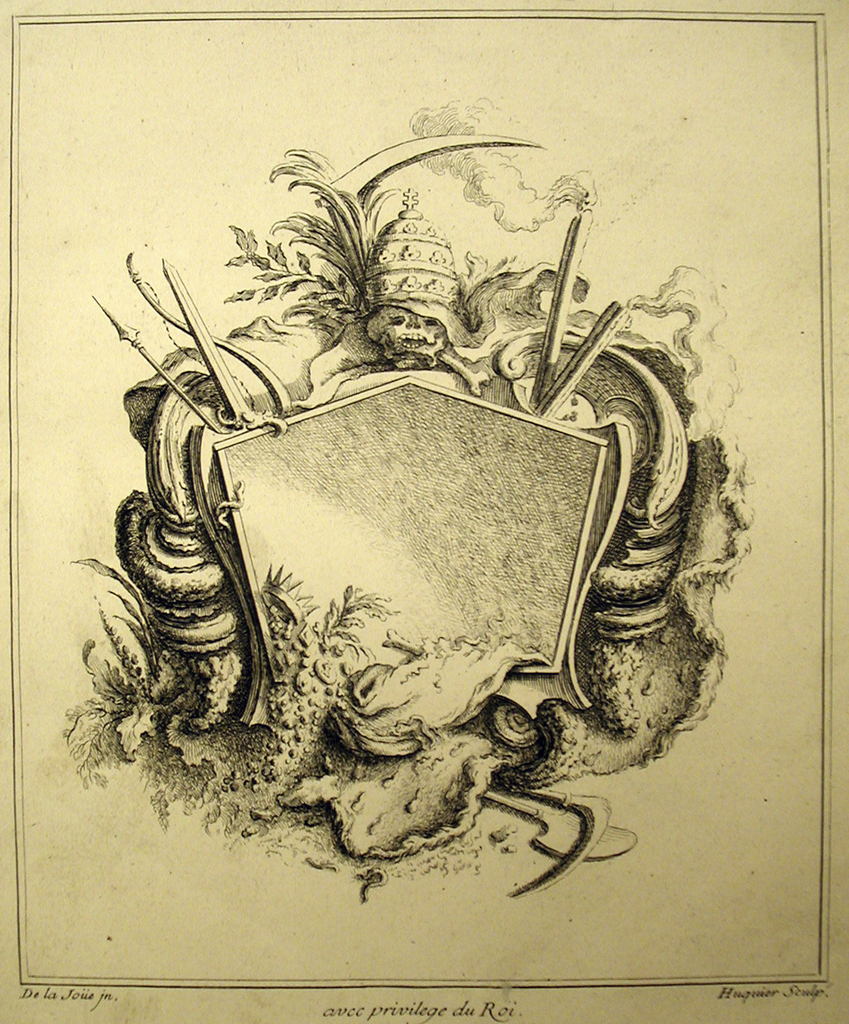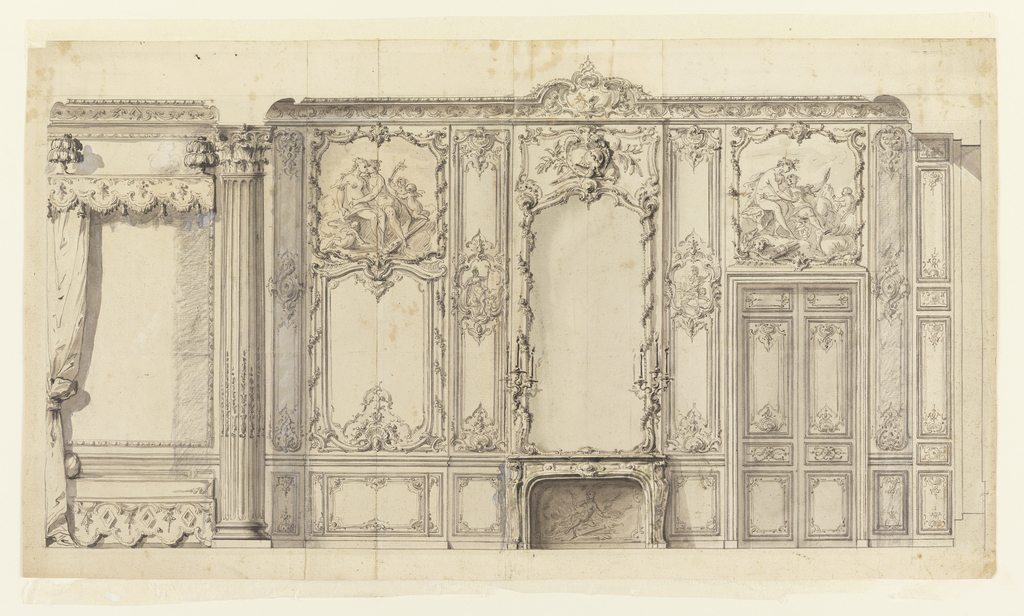It may take a moment to figure out this eccentric vase design: is a tortoise sitting on a faceted plinth or are the two integrated into a single design? This eccentric print actually shows a vase, or an ewer with a lid shaped like a tortoise. Its mouth serves as the sprout, and its tail...
Hot chocolate has been a fashionable drink since the eighteenth century, and the popularization of the beverage also saw the rise of new designs related to its consumption and preparation. This ornament print by the French designer and printmaker Jean-Baptiste Fay shows twelve different designs for chocolate cups. Each cup is decorated with a diverse...
The image of the painter in his studio is a popular and common visual theme from the early modern period to the present. This particular cartouche, designed by Jacques de Lajoüe, shows a painter with the tools of his trade arranged in the form of a cartouche (a type of an ornamental frame). With the...
When the Hewitt sisters founded the Cooper Union Museum in 1897, they sought to provide a rich visual resource for students who were destined to become architects and designers. As they assembled the works of art and design that would enter the museum’s collection, the sisters recognized that drawings offered unique opportunities to learn how...
This is a design for a panel for a folding screen by the prolific French painter, designer and academician François Boucher. Titled, “The Triumph of Priapus,” it was etched and engraved as part of a suite of folding screen designs. This publication, which was titled Nouveaux Morceaux pour des paravents, included four other designs titled,...
This drawing is a design for a spandrel, the roughly triangular space between the left or right exterior curve of an arch, by the French academician and painter François Boucher. The drawing is executed with black chalk, pen, brown ink and wash and represents the personification of truth and fame honoring Louis XV. In the...
This is a design for a cartouche by the French académician, ornemaniste, and painter Jacques de Lajoüe (1687- 1761). It was etched by Gabriel Huquier as plate 4 in his Second book of Cartouches (Deuxième livre de Cartouches), which was published in 1734 (as established by Roland Michel). The ascribed date locates this at a...
The Hôtel de Soubise is a familiar sight for many researchers of French history. Located at 60 rue des Francs-Bourgeois in the 3rd Arrondissement, the building is now used as one of the main branches of the French National Archives. This drawing after the French architect Germain Boffrand (1667- 1754) shows an elevation of the...
